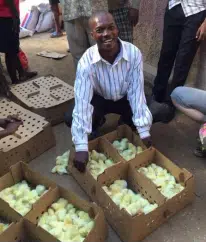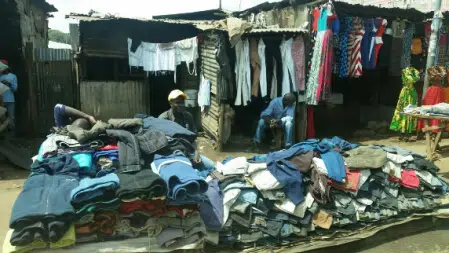Over one and one half billion people live on less than the equivalent of $1.25 per day. And this number is touted as a great improvement over two billion in 1990. Most American’s pay double that for their morning cup of coffee! How do parents provide housing, food, clothing and an education for their children? This is not God’s design for His people. He is a God of extreme abundance, not lack. He has provided land that is filled with natural resources and intelligent people to know how to use them to provide for their needs.
The images of people in terrible poverty, substandard housing and without adequate water or food supplies, and in need of medical attention, cause all our hearts to break. Our immediate response is to do something, anything, to help. That may mean giving money to aid agencies, donating food or clothing, or even going on a mission trip to serve the needy for a week or two. But does that short-term effort make a long-term difference or help to solve the root problem?
Unfortunately, it does not. Billions of dollars each year is spent on foreign aid, both from individuals and by government. Very little of that money reaches the people it was intended for. Instead, it is given to government leaders who use it for corruption purposes. It creates dependency and paternalism with their benefactors. Foreign aid for natural disasters, epidemics and response to wars is necessary. But it must be done in a way that sustains the local economy, not replace it for personal gain and the detriment of the local economy. Haiti following the 2010 earthquake is an example. In the rush of support following the devastation, many local businesses closed because of the aid that was brought in. Local shoe manufactures could no longer compete with free shoes, local school bags manufacturers were replaced with free school bags from Sunday School children in the US, and local rice farmers could no longer sell their rice because of the US subsidies on rice shipped into Haiti. All of this was done with good intentions, but it failed to examine the unintended consequences to the environment, economy, and people they were trying to help.
Nehemiah Project believes that entrepreneurship, Biblical Entrepreneurship specifically, is an answer to reducing poverty, restoring dignity to people, and rebuilding economies that transforms families and communities. The Biblical Entrepreneurship Program helps people build a business from an idea into a kingdom business. We are about success, not poverty. We believe local people can solve local problems using local resources. The Lord provides ample resources and supplies all of our needs. We do not pity the poor. Our teachers and partners work alongside students to help them realize their dreams. Our programs and processes are designed to collaborate and partner with the entrepreneur; we support and provide information that guides the student to realize their dream.
This blog will highlight stories from our students that demonstrate the power of building kingdom businesses and how your support can bring training, coaching support, and access to capital to the Glory of God.
Below are two stories of how BE transforms lives!
Meet Pastor Daniel Saintus of Pignon, Haiti.
- Church leader
- Head of BE Pignon
- Leader of East River Haiti Mission
- BE Graduate
- 2016 BE Haiti National Competition – 2ndplace
- BE Entrepreneur

He raises 400 chicks at a time, supplied by Haiti Broilers & capitalized by KORE and East River Haiti. Each cycle lasts 42 days, and he is completing his 3rd cycle. As each cycle ends he becomes a chicken salesman and takes them to market. He is making a profit. When asked by the KORE representative why he was successful, Pastor Daniel said, “I am a Biblical Entrepreneur. I learned how to run a profitable business.”
Nehemiah Project in collaboration with Mission Dei Church Asheville, NC launched BE I and II in Mtwara, Tanzania. 48 people attend the BE I course, and 44 went to BE II. David Lindrum shared that he was moved by a pastor who visits a poor village as part of his duties. In this village, the people are too poor to purchase fishing nets to fish the nearby lake. Instead, they use dynamite. This is a health hazard, hard on the environment and devastating to wildlife. The women there have no occupation, so they sit on their steps in the afternoons and drink beer. The pastor routinely requests money to purchase fishing nets and sewing machines. The difference is that after this class, the pastor did not request money. Instead he said, “I see now that I could purchase a small boat and build a fishing business in the village. I could hire people from the village. In fact, I know someone who sells boats and I could buy several boats.”
Give a man a net to catch fish or give him a vision of a profitable, sustainable business that meets financial needs for years to come.
– posted by Debra Schlaht
